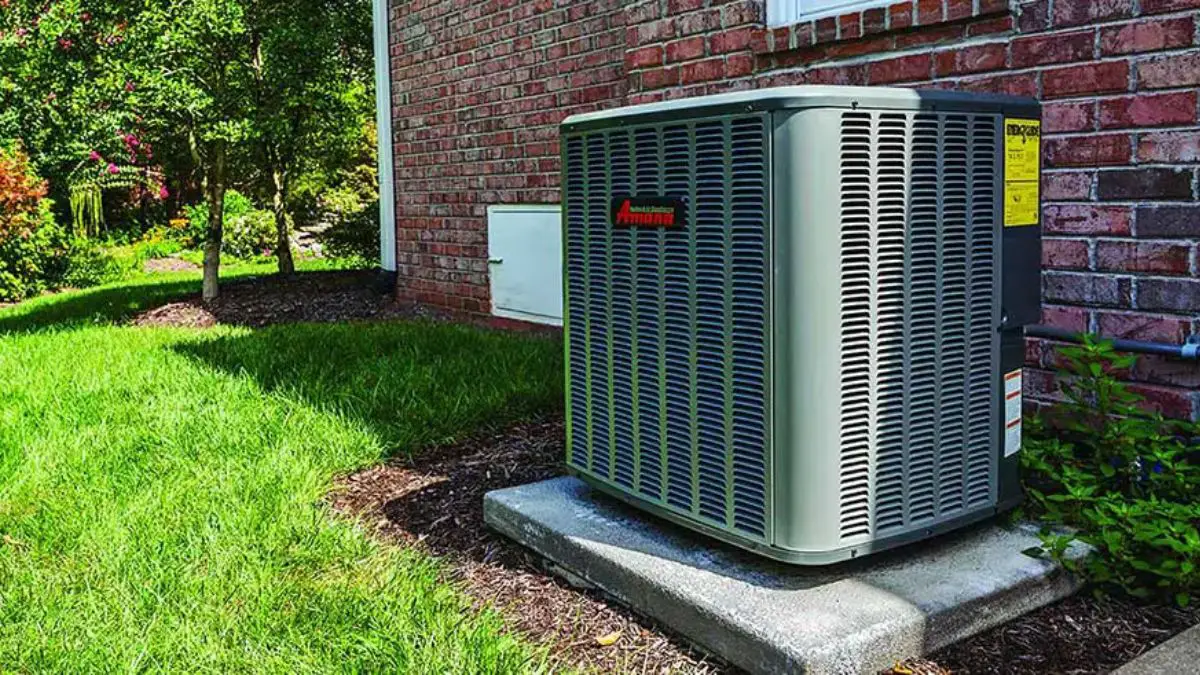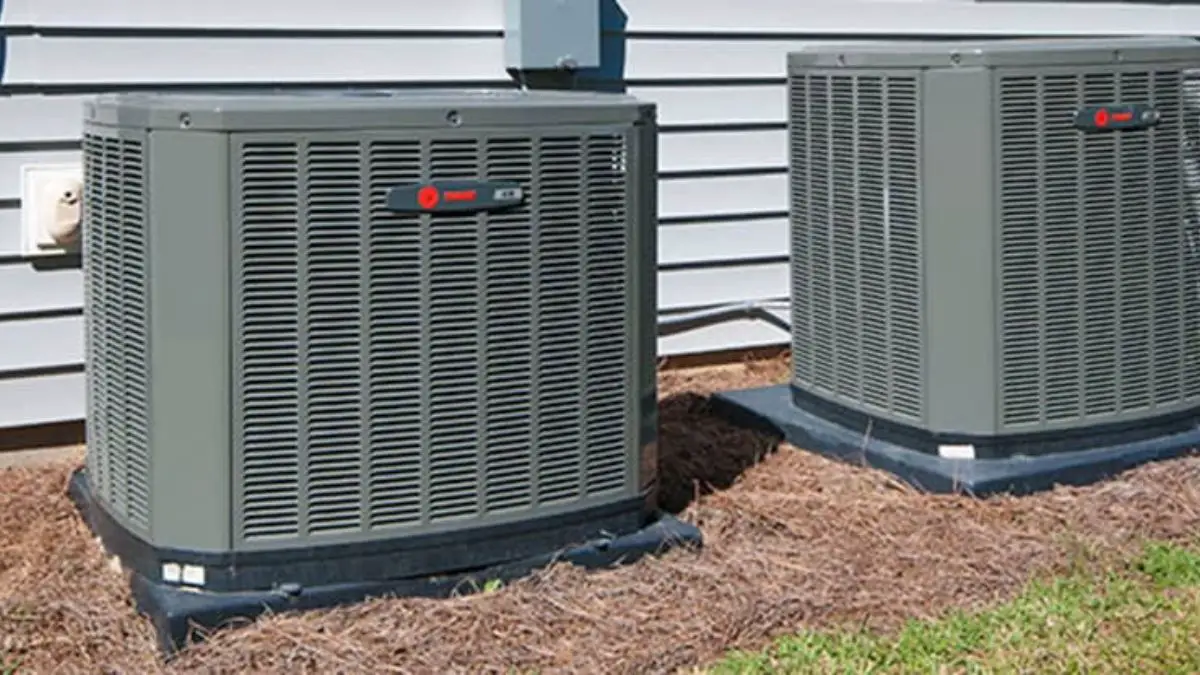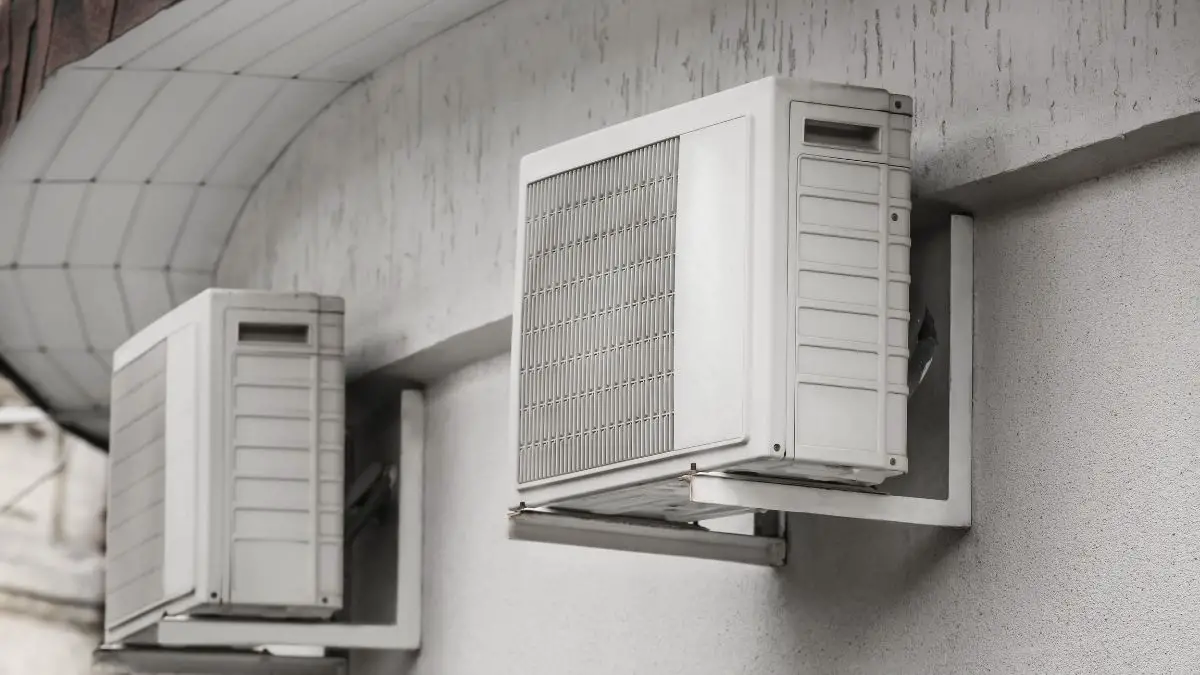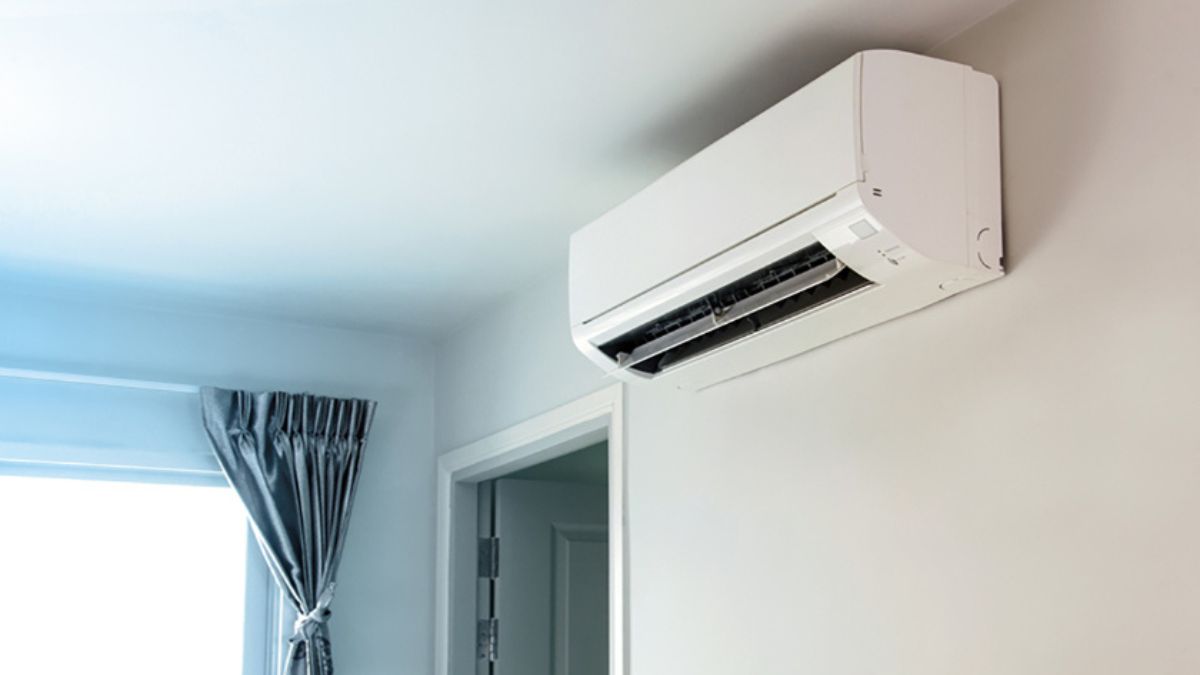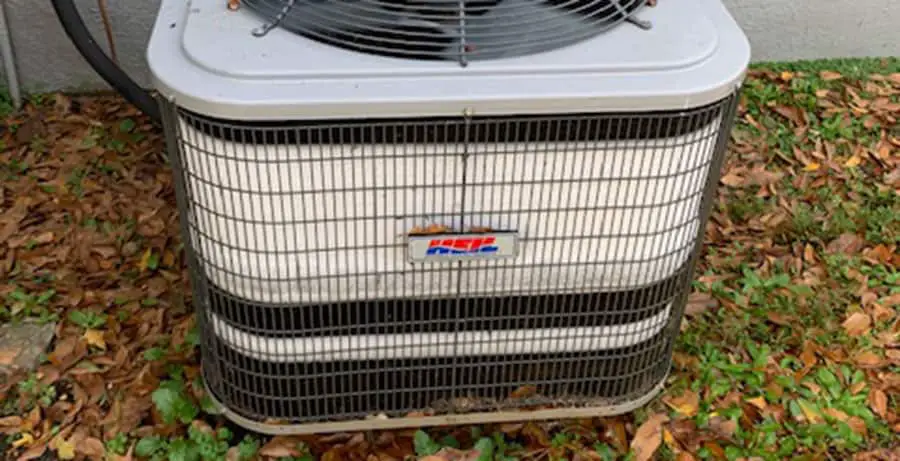
Heat pumps are top-rated due to their ability to heat your home efficiently during winter and act as an air conditioner in summer. However, heat pumps tend to freeze up in certain conditions. In this article, you’ll be learning why heat pumps freeze up and what you can do to prevent it from happening.
Heat pumps can freeze up due to reduced airflow, excess moisture, lacking maintenance, settlement, and equipment failure issues. During winter, frost or ice can form on the outside condensing unit in the heating cycle. Ice formation is abnormal and usually indicates an underlying problem that needs attention.
If you’ve been using a heat pump for a while, you may understand how your unit works. It’s normal for your heat pump’s outer evaporator coils to get cool during the heating process. Some amount of ice build-up is perfectly normal. What is not normal is for your evaporator coil to get so cold that ice builds up and begins to cover the evaporator coil.
If this happens, the heat pump will stop working and can be damaged. Now, you don’t want that to happen, do you? Continue reading to know the outside coils on your heat pump may freeze up and steps you can take to prevent this from happening.
What Causes Your Heat Pump to Freeze Up?
You should know that your heat pump freezing up is not normal under any circumstances as there is always an internal or external source that causes your unit to freeze up.
All heat pumps come with sensors that detect when the exterior evaporator coils start to build up ice, which then triggers an automatic defrost cycle. This way, ice is prevented from building up. As a result, a heat pump in good condition will not heat up.
Different factors can cause your heat pump to freeze up, and we will discuss them below.
Equipment Failure Inside Your Heat Pump
As your heat pump ages, some parts may start to fail due to exposure to climate and weather. Aging heat pumps can start to have technical problems, leading to your heat pump freezing up. Generally, you’ll need an HVAC professional to fix the heat pump’s technical issues.
Examples of such technical issues are:
- Malfunctioning Defrost Cycle – the heat pump should enter the defrost cycle automatically to prevent ice from forming. In the defrost cycle, the heat pump reverses the flow of refrigerant to allow hot refrigerant to melt warm the coils to prevent ice from forming.
- Damaged or Poorly Operating Fan Motors – When a fan motor is damaged or malfunctioning, the system can not exchange the heat needed to warm the refrigerant. A failing fan will also prevent your system from heating your home correctly.
- Low Refrigerant Levels or Leaks – Your heat pump uses refrigerant to transfer heat needed to heat (and cool) your home. When refrigerant levels are low, there is not enough heat transfer causing your system to function poorly.
- Bad Sensors or Thermostats – Bad sensors or thermostats fail to monitor temperatures, which doesn’t trigger the defrost cycle.
- Malfunctioning Electrical Relays for the Defrost System – much like the bad sensors or thermostats, malfunctioning relays prevent the defrost cycle from occurring.
- Stuck Cycle Reversing Valve – the reversing valve is what changes the directional flow of the refrigerant. When this occurs, the reversing valve can’t reverse the flow of refrigerant to send the hot refrigerant to the condensing coil as intended.
Insider Tips #1: Do not salt your heat pump to remove ice. Salt does wonders for your sidewalk and steps; however, the salt will severely damage your heat pump. It will rust the evaporator coil over time and eventually cause premature failure.
Restricted Airflow Around Your Heat Pump
A heat pump needs adequate airflow to be able to heat or cool the air in your house. When your unit does not get adequate airflow, the outside evaporator coil does not get enough air causing the evaporator coil to ice over.
The most common cause of restrictive airflow in heat pumps is clogging in the air filter on your heat pump system. Dirty air filters starve the heat pump from receiving the airflow needed to function correctly.
Another cause of restricted airflow is overgrown vegetation around the outside condensing unit. Thick vegetation around the outside coil prevents the system from receiving the airflow needed for heat exchange.
Insider Tip #2: Keep vegetation tripped back at least 1 foot from your heat pump system. For tips on how to enclose your heat pump without obstructing airflow, see our article How to Correctly Enclose a Heat Pump.
Excess Moisture From Your Heat Pump
It’s not a good thing when extra moisture or water gets trapped in your heat up as it significantly increases the chances of your heat pump freezing up. Water build-up can be caused by the accumulation of water at the base of the heat up or a broken gutter that pours excess water directly on the heat pump base.
Excess sweating on the coil that is not collected and drained away from the heat pump can also freeze. Sweating is typically caused by a maintenance issue, which leads us to our next condition.
Insider Tip #3: Make sure gutters don’t discharge at the base of your heat pump. Controlling drainage to critical to keeping the heat pump as dry as possible reduces the risk of freezing.
Lack of Routine Heat Pump Maintenance
It’s vital to carry out routine heat pump maintenance on your heat pump to keep it in good shape. Most people carry out routine maintenance every year. However, twice a year is needed in some areas. Most HVAC companies will carry out routine heat pump service on your heat pump for a very reasonable price.
Heat pump maintenance includes cleaning the exterior evaporating coils, cleaning or replacing the system’s air filters, checking refrigerant levels, and lubricating the fan motor. These maintenance tasks go a long way in increasing the longevity of your heat pump.
Insider Tip #4: Be sure your heat pump is level. A level heat pump works at optimal efficiency, ensuring proper circulation of the refrigerant. HVAC technicians can level your unit during routine service if needed.
Settling of Your Heat Pump
Your heat pump sits on a solid, either plastic or a concrete base. Unless your heat pump is on an elevated deck, keep an eye out for the pad or slab settlement that your heat pump rests on. The heat pump needs to be slightly elevated to prevent blockage of the drains at the unit’s base that drains excess water flows from rainfall. Poor drainage can partially cause excess water to freeze.
Insider Tip #5: Elevate your heat pump. If you’re having problems is site drainage, have your heat pump elevated about 12-18 inches on a wood deck platform to keep the bottom of the heat pump dry.
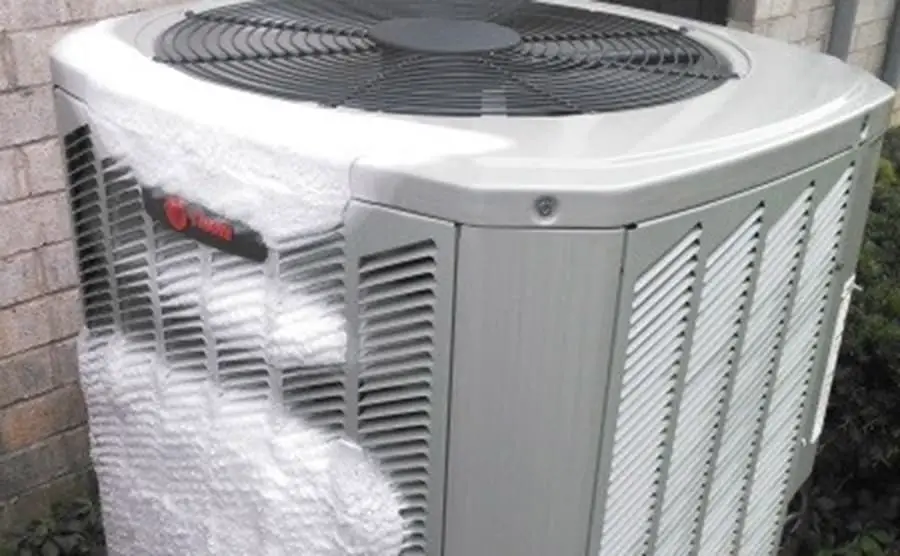
Why Does My Heat Pump Freeze Up in Summer?
Most people find it weird when they set the thermostat of their heat pump to cool on a hot summer day, and they end up with a frozen heat pump. “It should not be possible,” they say. But you see, it’s possible. Should your heat pump freeze in summer, your unit won’t work efficiently and not adequately coot your home.
Heat pumps cool houses by absorbing heat from a cold refrigerant that runs through their evaporator coils. Condensation then builds up as warm air hits the coil. Freezing occurs when the coil gets too cold, and this causes your heat up to freeze up even in summer.
How does your evaporator coil get too cold? Your coil may become too cold if your heat pump is running low on refrigerant. The unit’s pressure drops when the refrigerant is low, and your coil gets cooler than it is typically.
Too much dirt in your coil may also cause it to become too cold and lead to your unit freezing up in summer. A way to prevent this is to carry out routine heat pump maintenance and change your air filters regularly. Also, poor airflow is another reason why your coil may become too cold.
Tips to Prevent Your Heat Pump From Freezing
If you find your heat pump freezing up, the first thing you should do is to check or replace the air filter (if needed) to ensure that there is an unrestricted airflow for your heat pump to work correctly. You should also check if there is any air flowing from the vent to know if the blower motor or some other part is malfunctioning or not.
A quick way to do this is to manually set the thermostat fan setting from “Auto” to “On” and check if air blows through the vents.
It’s common to see people using a water hosepipe to melt ice build-up in their heat pumps. This method works and is the only way to melt the ice build-up without damaging your unit. However, this will only melt the ice away if it’s above freezing outside.
You’ll still need to call in a professional to check your heat pump to determine what the underlying problem caused the unit to freeze up. A heat pump that freezes up will not work efficiently while increasing your electricity bill a lot.
How Cold is too Cold for a Heat Pump?
Your heat pump uses outdoor air to maintain comfortable temperatures in your home during winter. Heat pumps transfer heat by either super-heating or super-cooling refrigerant depending on its operating in heating or cooling modes. Some (but not all) heat pumps can even extract heat from the air as low as -2 degrees Fahrenheit. Most heat pumps will lose their efficiency at about 25 degrees Fahrenheit.
Your heat pump will not work efficiently when the outside temperature drops below 25 degrees Fahrenheit. When this happens, your heat pump will use more electricity to keep your home warm, causing higher energy bills. The manufacturer will specify the temperature range within which a heat pump will work efficiently.
Most heat pumps operate efficiently above 25 – 30 degrees Fahrenheit. Efficiency reduces when temperatures fall below 25 degrees Fahrenheit.
So what happens to your heat pump in the middle of winter when temperatures drop to freezing and below? Well, your heat pump isn’t useless and still works to warm your home, albeit using more electricity or an alternative source of heat like natural or propane gas.
Electric heat pumps have backup emergency heat, which uses inefficient heating strips to assist the heat pump is warming your house. For dual-fuel heat pump systems, the heat pump utilizing a gas furnace as a backup heat source when freezing temperatures are present. As the temperature rising back above freezing, the gas furnace’s reliance diminishes, and the heat pump takes over again.


